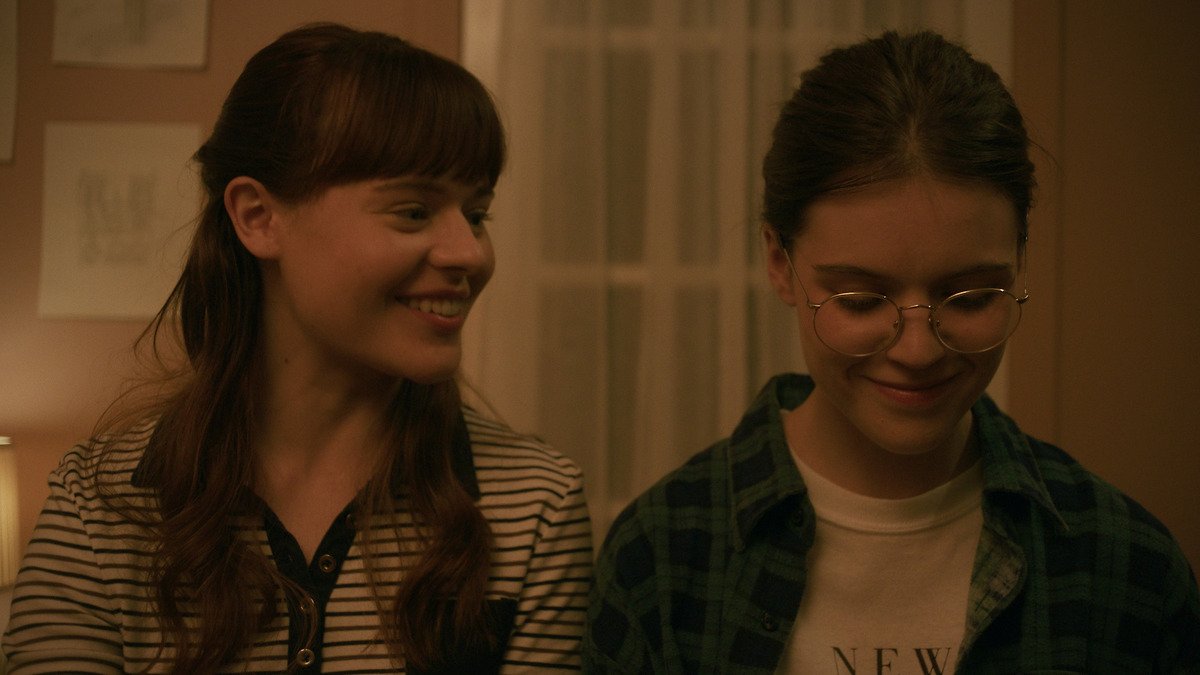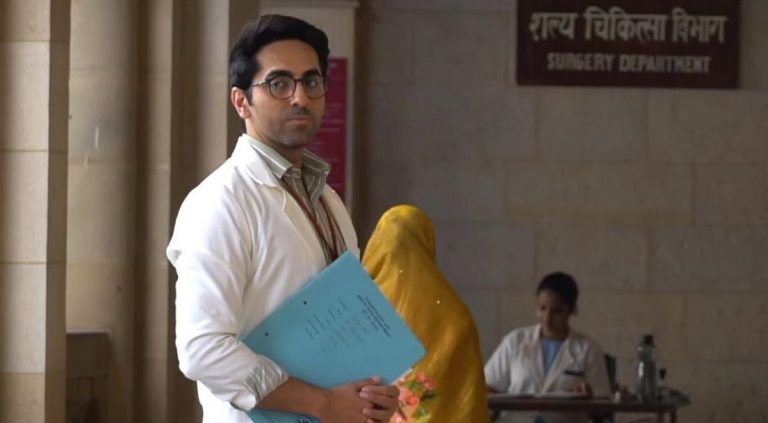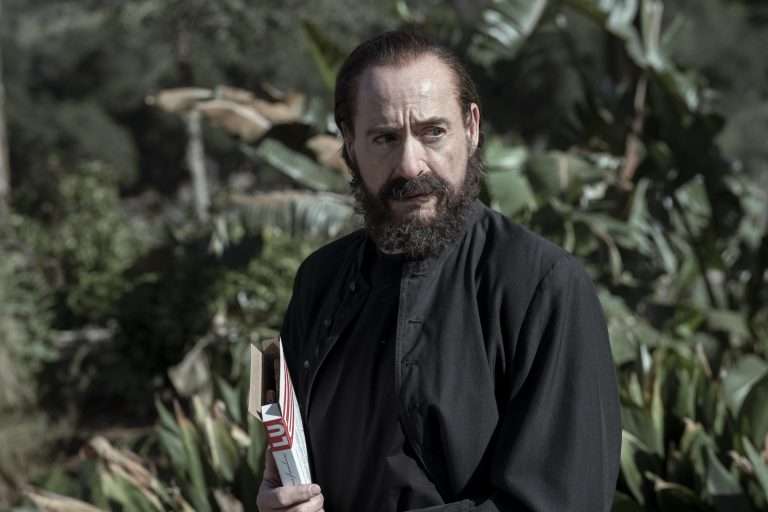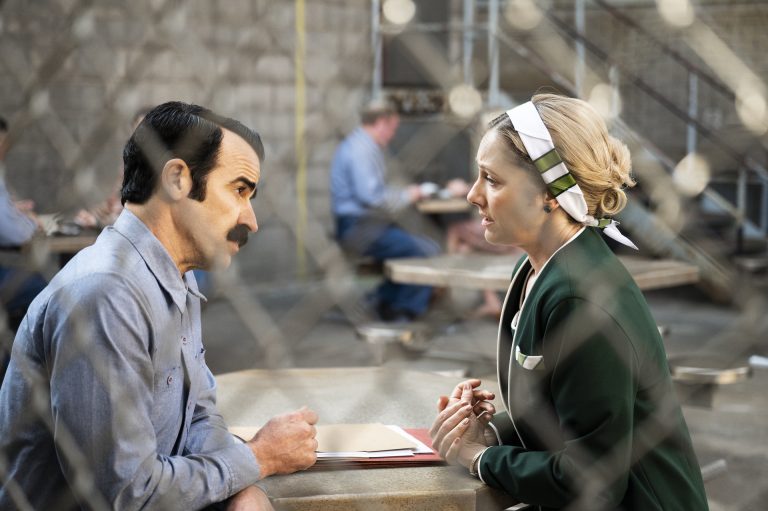You Can Live Forever (2023) Movie Review: Swashbuckling queer stories are everywhere; they have always been. We, as a society, barely opened our eyes to them, respected them, or gave them the iota of recognition that cis-het relationships enjoy until the last couple of decades, when queer relationships slowly started occupying the center stage across popular culture. You Can Live Forever, written and directed by Sarah Watts and Mark Slutsky, forces us to go back in time to when queerness, let alone queer relationships, was taboo – the early 1990s. It is a work of art that strikes the right balance between the display of religious dogma and queer love.
The story follows Jamie (played by Anwen O’Driscoll), who is visiting her aunt and uncle living in a non-decrepit Quebec town for a brief period after her father’s death as her mom recuperates from the gravity of personal loss. Her aunt and uncle belong to the group of devout Jehovah’s Witness congregation residing in the town.
Their religious beliefs and practices, which she is gently coerced to participate in, make her feel like an outcast. Before long, she makes friends with Marike (played by June Laporte), the younger daughter of the Head of the Congregation. They inch closer with every activity they participate together in, from field service to Bible reading, only to realize that they are desperately attracted to each other and maybe in love.
However, their closeness doesn’t go unnoticed in the community around them, especially since they are queer lovers. Does their love stand the test of a community’s religious beliefs, or does it crumble amid tensions brewing around their relationship? You Can Live Forever stands out to me because of how well it walks the tightrope between the transgressive nature of love and the regressive nature of religion.

The central romance between Jamie and Marike is portrayed so tenderly that you automatically start to dread the hailstorm that’s coming for them in the future. They are teens, a period of human life we possibly dread as being the most tumultuous because the heart is always on the brink of being overwhelmed with emotions. Initially, Marike is just someone Jamie meets at one of the Jehovah’s Witness community meetings.
They bond over their desire to go to Europe and their personal lives, feeling seen and heard for the first time in their lives. O’Driscoll and Laporte play their parts so organically that it becomes difficult to tell them apart from their on-screen characters. They bubble with organic joy in each other’s company, even as the house of cards (literally) they are building is about to crumble.
I was so invested in their romance that in one scene when Marike excuses herself to meet Jamie and give back her scarf, each moment of their shared kiss outside Jamie’s aunt’s house made me fervently hope that they don’t get caught by the community elders. The way their platonic friendship tumbles into a hormone-raging teenage attraction is beautifully held up by focusing on their shared gestures of love, both small and big.
However, the screenplay is so focused on portraying the romance between Jamie and Marike that it doesn’t allow even a glimpse into Jamie’s life as a closeted lesbian or her relationship with her parents back home. Similarly, her friendship with Nate (played by Hasani Freeman) is brushed aside.
As a result, we never hear any criticism against the Jehovah’s Witness community or come to understand how outsiders perceive them for their religious faith. The muted color palette is cleverly used by the cinematographer, Gayle Ye, to capture the feeling of an outcast that Jamie experiences when she is around her aunt’s family and the meetings at the church. At the same time, it suddenly becomes brighter and more colorful when Jamie is around Marike. The religiosity of the community is not villainized; it forms the backdrop of the entire film but never threatens to preach its beliefs to the audience. Kudos to good writing by the filmmakers!
Director Sarah Watts has confessed to growing up gay in a Jehovah’s Witness community and wishing for a film to resemble the angst of this predicament accurately; You Can Live Forever, to Watts, is that film she always desired to watch as a child. There is a quietness in this movie that is brought out by the background score. It is a cozy romance that perfectly encapsulates the nostalgia of teenage love. You Can Live Forever premiered at the Tribeca Film Festival 2022 and was screened at the Reelout Queer Film Festival 2023.




![The Night Porter [1975]: ‘A Biblical Story!’](https://79468c92.delivery.rocketcdn.me/wp-content/uploads/2017/05/the-night-porter_704_7.jpg)

![Arjun Reddy [2017] Review – Rebel without a Cause](https://79468c92.delivery.rocketcdn.me/wp-content/uploads/2019/05/Arjun-Reddy-high-on-films-768x510.jpg)


